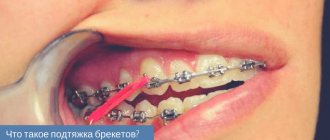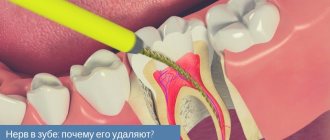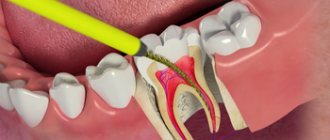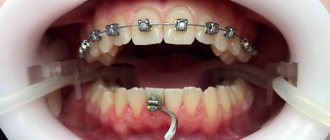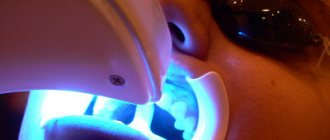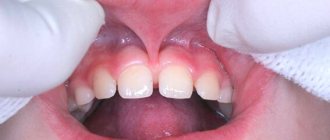- What is included in the rehabilitation
- Stages of a full range of events
- What is a certificate from a dentist about oral hygiene?
- Certificate of oral hygiene during pregnancy
- Certificate on oral sanitation for children and adolescents
- Where can I get a certificate of oral hygiene?
Sanitation of the oral cavity is a set of measures for the diagnosis and treatment of dental pathologies. It allows you to promptly detect problems with teeth and gums and effectively eliminate them in the early stages. Various institutions may require a certificate of oral sanitation, which can be purchased at the reliable A-Medic clinic. Let's take a closer look at how oral cavity sanitation is carried out and what the certificate is.
What is included in the rehabilitation
It is recommended that every person undergo therapeutic and preventive health measures once every six months. This will allow you to promptly detect and eliminate carious lesions and other problems at an early stage, avoid sudden toothaches and keep your teeth healthy. Upon completion, a certificate of oral sanitation is issued. There are four forms of treatment and preventive measures:
- one-time For example, to register a child for school or to find a job;
- individual. A person, on his own initiative, turns to a dentist to assess the condition of the oral cavity and, if necessary, undergo a set of medical procedures;
- periodic. For some people, sanitation is a mandatory procedure (in accordance with the medical examination plan);
- planned (therapeutic and prophylactic). It is prescribed to check the condition of teeth and gums to maintain optimal levels of oral health. Routine inspections are carried out in schools and preschool institutions, and at many hazardous industrial enterprises.
There are no contraindications to sanitation. In the presence of some chronic diseases, it is carried out more often than once every six months. This applies to people suffering from diabetes, tonsillitis, asthma and cardiovascular pathologies. Therapeutic and preventive measures may include the following manipulations:
- treatment of various diseases of the oral cavity (in particular, elimination of carious lesions);
- removal of molars and premolars;
- restoring the integrity of the dentition using fillings (and in some cases, prosthetics);
- elimination of inflammatory processes;
- removal of tartar and plaque (via ultrasonic cleaning);
- correction of malocclusion.
Stages of a full range of events
A full range of treatment and preventive measures consists of the following stages:
- examination by a dentist;
- identifying a problem and making diagnostic assumptions about the need to solve it;
- taking an x-ray of the problem area;
- ultrasonic cleaning, removal of plaque and tartar;
- drawing up a plan for further therapy (if necessary);
- referral for consultations to highly specialized specialists, for example, surgeons or orthodontists (if occlusion disorders and other specific problems are detected);
- carrying out health procedures;
- coating of teeth with a special gel polish, which contains calcium and fluoride;
- providing an opinion from a specialist;
- drawing up an individual additional schedule of visits (if necessary).
What is a certificate from a dentist about oral hygiene?
A certificate issued by a dentist is an official document that confirms the dental health of its bearer. The document is prepared in any form. It must contain information about the patient (full name, age), the date of the complex of measures. The validity of the document is confirmed by the dentist’s signature and seal. It may be needed by people of different age groups and for different purposes. Often, a certificate of oral sanitation is required for hospitalization (in particular, to prepare for surgery), when entering a job, when registering with a gynecologist, when registering a child for kindergarten or school.
What is the difficulty in registration?
There may be some difficulties on the way to obtaining a document confirming the satisfactory condition of your teeth. For example, a certificate is needed to enroll a child in an educational institution urgently, but the doctor discovers some kind of disease. Treatment can take a very long period. During this time, another may be accepted to take your child's place.
Or, people who do not undergo a professional examination in a timely manner may simply not be allowed to perform their work duties.
Video on the topic:
Certificate of oral hygiene during pregnancy
Treatment of dental diseases in pregnant women is complicated by the fact that anesthetic substances are contraindicated in the first trimester. To ensure that the expectant mother does not have problems with her teeth and gums during pregnancy, attention should be paid to dental health even during the planning period for conception. If you consult a dentist in a timely manner, it is possible to eliminate all existing problems and reduce the emergence of new problems to a minimum. The most common ailments that pregnant girls have include:
- carious lesions (as a result of acid-base imbalance);
- gingivitis (due to hormonal changes);
- a significant weakening of the protective properties of tooth enamel and deterioration of its condition in general (due to changes in the mineral composition of saliva and loss of calcium).
At the Moscow clinic "A-Medic", a complex of treatment and preventive measures for pregnant girls is carried out with extreme caution in order to minimize possible risks. When contacting a dentist, a girl should know the exact date of pregnancy. This information is necessary for the correct and safe selection of treatment procedures. If there is an urgent need to remove a molar, it is recommended to carry out this activity in the second trimester, since at this time the negative effect of medications on the fetus is minimized.
At the appointment, the doctor will conduct a thorough examination and give recommendations on the selection of individual hygiene products. A conclusion on the sanitation of the oral cavity is often required by a gynecologist during registration in order to eliminate possible risks of infection.
Hormonal changes in the body, acid-base balance disorders, calcium deficiency - all these factors lead to teeth becoming more fragile, and therefore susceptible to rapid destruction. Infections in the oral cavity pose a danger to both the health of the pregnant woman and the child, so the sanitation procedure is necessary.
My caries is my business, it will not harm the child in any way
Even knowing about oral diseases, expectant mothers are not always in a hurry to solve them. There is a special type of people who tend to put everything off until later.
Now imagine: your baby, the best and long-awaited one, has been born.
He is still completely defenseless, so the pediatrician visits you at home. In the first month of life, a child’s immunity is so weak that even an hour’s walk is too much for him.
And you, of course, want to hug and kiss him.
In this case, putrefactive bacteria from your carious mouth will inevitably enter the body of your weak little one.
And if pathogenic microflora (germs) are “no big deal” for an adult mother’s body, then for a newborn this is a real blow.
In simple terms: if you do not treat oral diseases, your mouth becomes a breeding ground for thousands of millions of harmful microbes. And the immune system of newborns does not yet know how to cope with even not very harmful ones.
Can you imagine what a really serious - and not at all imaginary - danger you will pose to your baby if you scratch your face (mouth) and then take the baby in your arms?!
I'm not intimidating. Just keep in mind that your teeth should be healthy before giving birth.
Certificate on oral sanitation for children and adolescents
Sanitation by a dentist is a mandatory event for children, both preschool and school age. A certificate of rehabilitation is required when registering a child for kindergarten or school. During sanitation, the dentist identifies existing problems and gives recommendations on proper hygiene care.
Often, a specialist detects the development of carious lesions at the initial stage. In this case, he can immediately treat them. If during the examination occlusion disorders are noticed, the specialist may refer the child for consultation to an orthodontist. To prevent the development of pathologies, it is possible to carry out fluoridation of teeth.
It is necessary to make an appointment with a dentist for children due to weakened and thin enamel. It is more susceptible to destruction, so it is necessary to detect the presence of problems in time and eliminate them in order to avoid a number of problems in the future. At the A-Medic clinic you can get a certificate for sanitation of a child’s oral cavity, the price is significantly lower than in other private clinics in Moscow.
What about anesthesia?
When the question arises about the need for treatment with anesthesia, pregnant women begin to seriously worry about the safety of the baby.
Many people are so concerned about this issue that they decide to leave everything as it is.
But you shouldn’t “sacrifice” your teeth for the sake of your child’s health. It's not that scary.
Why are pregnant women generally afraid of anesthesia? In fact, not at all because it will penetrate the baby and harm him directly.
The fact is that the main component of anesthetics is usually adrenaline, which blocks pain.
It is not dangerous for the baby. But for pregnant women - yes. It can cause uterine tone. And this can lead to premature birth, the threat of miscarriage and other complications.
But - modern medicine uses painkillers with a minimal amount of adrenaline. These are Direct Special anesthetics developed for pregnant women and tested on them many times. They make it possible to carry out treatment even in pregnant women without any danger.
Among the most common anesthetics suitable for dental treatment in pregnant women today are ultracaine and primacaine .
I will update this article if I come across the names of other types of anesthesia that are safe for pregnant women. But in general, I note that it is unlikely that a dentist will give you a type of anesthesia that is dangerous for pregnant women - who wants to take responsibility for possible problems?
Where can I get a certificate of oral hygiene?
Many people are interested in how to obtain a certificate of oral hygiene. To obtain it, you can contact the public clinic at your place of residence (or a dental clinic). After making an appointment, the specialist will conduct a full examination. If during inspection it does not reveal any problems, then, as a rule, the document is issued on the day of application. If problems are found during the examination and treatment is required, the document will be issued after its completion.
Currently, it is possible to obtain a certificate as quickly as possible, avoiding long queues and waiting for an appointment. To do this, you need to contact a private clinic - submit an application at a convenient time, come for an examination and receive a document. On average, the procedure for obtaining a document lasts about 1-2 hours. In the reliable A-Medic clinic you can get a certificate of oral sanitation, the cost of which is affordable (lower than in other dental clinics).
What do you need to know before going to the dentist?
There's no need to be afraid
Modern dentistry has methods of pain relief that reduce discomfort and pain during treatment, prosthetics, and even tooth extraction to zero. Some people are afraid of injections, but even here there is practically no pain, since doctors use the following methods:
- injections are performed with special syringes with thin and sharp needles;
- the injection site is pre-treated with a spray or gel with an anesthetic;
- for easier penetration of the needle, the mucous membrane is dried;
- the medicine is administered gradually, slowly, so that it accumulates at the site of inflammation.
Lidocaine and novocaine in modern dental clinics are replaced by new generation drugs with a more powerful effect, so the patient does not feel anything even with complex molar removal.
You need to choose a trusted clinic
When choosing dentistry you need to consider:
- availability of high-quality multi-profile equipment;
- range of services provided;
- professionalism, skill of specialists.
Dentistry Implant Expert is one of the leading dental clinics that provides services for treatment, whitening, prosthetics, implantation, and tooth extraction. The medical center employs highly specialized dentists who regularly improve their skills and provide services at the highest level.
Is it possible to eat before going to the clinic?
If the treatment will take place under anesthesia, it is necessary to have a snack. This is due to several reasons:
- Less saliva is produced. Dry mucous membranes are necessary for fillings and diagnosing certain diseases. If a person is hungry, he is provided with increased salivation;
- Immediately after therapy you cannot eat for 1-2 hours, so it is advisable to eat before the procedure so as not to feel hungry later.
Excessive consumption of food is also not advisable before taking it, otherwise nausea and vomiting may occur, especially in people with a sensitive reflex.
Eating is strictly prohibited if the treatment is carried out under anesthesia. The anesthesiologist should tell you detailed rules for preparing for this procedure.
Can I drink alcohol?
Some people believe that if you drink a little alcohol before going to the dentist, dental treatment will not be so scary. In fact, drinking alcohol is strictly prohibited, at least 24 hours before a dental procedure. It can block the action of the pain medication, making treatment painful or even impossible.
It is also worth remembering that the dentist has every right to refuse to treat a patient who is intoxicated.
What should you not do before going to the dentist?
- Try to drown out bad breath with mints, chewing gum and other methods. Odor is one of the diagnostic criteria that in some cases helps the dentist make the correct diagnosis;
- Taking painkillers. If you have to visit a doctor because of acute pain, you should stop taking any painkillers a few hours before leaving home. For a dentist, pain response is important. It evaluates the severity, intensity, and speed of onset of pain when exposed to irritants, and tablets significantly complicate diagnosis.
- Conceal information from your doctor about taking medications, especially blood thinners. Otherwise, there is a high risk of bleeding and other complications. Sometimes the dentist recommends stopping such medications for a while and scheduling a visit for another time.
- Hide information about the presence of an allergic reaction, existing diseases of internal organs, hereditary pathologies, the presence of menstruation, menopause. All this may affect further therapy.
What should you take with you?
You must come to any medical institution with a passport or medical insurance. It is advisable to have SNILS with you in paper or electronic form. Also, be sure to take with you the results of x-rays, previous studies, if they were not carried out in this clinic, conclusions and recommendations of the doctor.
You need to plan your appointment in advance
A trip to the dentist should be planned in advance, otherwise, if the doctor does not have a free window, the patient may simply not be seen. The exception is cases with acute pain. In this case, the doctor cannot refuse an examination.
The duration of the visit depends on the complexity of the procedure. A regular examination lasts on average 15-20 minutes, professional cleaning up to 1 hour, treatment can take more than 60 minutes. It is better to arrive early in order to have time to complete all the necessary documents. If a patient is late or cannot come to the clinic, this should be reported.
When should you not go to the dentist?
It is better to postpone going to the dentist in the following cases:
- the presence of herpes, elevated body temperature;
- viral diseases of the respiratory tract;
- period of menstruation in women;
- nasal congestion or severe runny nose;
- excessive drinking on the eve of the visit;
- bad feeling.
In the office, you should calm down, answer all questions clearly and truthfully, and follow all the instructions of the attending physician. Only in this case will a trip to the dental center be easy and painless.
